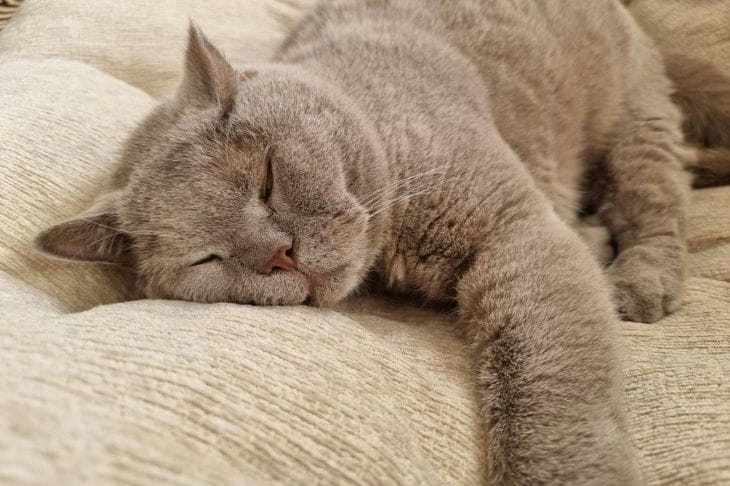Cats are sensitive creatures and can experience stress just like humans.
However, unlike humans, they cannot express their condition in words.
It is important for owners to learn to recognize signs of stress in their pets in order to provide the necessary assistance in a timely manner.

Changes in behavior
One of the first signs of stress in a cat may be a change in its normal behavior.
The pet may become more aggressive or, on the contrary, overly fearful. Some cats begin to hide in secluded places, avoiding contact with people and other animals.
If a normally active cat suddenly becomes apathetic or, conversely, hyperactive, this may signal a state of stress.
Problems with appetite
Stress often affects a cat's appetite. Some animals may refuse to eat when stressed, while others, on the contrary, begin to eat more than usual.
Any sudden changes in the pet's eating behavior should alert the owner.
Toilet Disorders
Cats that are stressed may change their toilet habits. This may include the animal not using the litter box, marking its territory, or defecating in inappropriate places.
This behavior can be either a direct consequence of stress or a sign of a stress-related illness.
Excessive grooming
Many cats become overly licked when stressed, which can lead to bald spots or skin irritation.
Particular attention should be paid to the belly, the inner surface of the paws and the base of the tail - cats often lick these areas when stressed.
Vocalization
Some cats become more vocal when stressed. They may meow, howl, or make other unusual sounds more often and loudly.
This is especially typical at night, when the cat may begin to wander restlessly around the house and meow loudly.
Changes in sleep
Stress can seriously disrupt a cat's sleep patterns. Your pet may start sleeping more than usual or, conversely, become restless and awake at unusual times.
Some cats may choose new, unusual places to sleep when stressed.
Physical symptoms
Stress can also manifest itself in physical symptoms. Your cat may experience increased breathing, an upset stomach, or vomiting.
Some animals lose their fur or their quality deteriorates. In severe cases, stress can lead to decreased immunity and the development of various diseases.
Causes of Stress in Cats
Understanding the causes of stress can help prevent it. Common causes include moving to a new location, a new person or animal in the home, a change in the owner's routine, home renovations, or loud noises. Even seemingly minor changes in the environment can cause stress in a sensitive cat.
How to Help Your Cat Cope with Stress
If you notice signs of stress in your cat, it is important to take action. The first step should be to remove the source of stress, if possible.
Providing a calm environment and creating secluded places to rest and play can help your cat feel secure.
In some cases, you may need to consult a veterinarian or felinologist to develop an individual plan to help your pet.
Stress prevention
The best way to deal with stress is to prevent it. Regular play, attention and affection from the owner, following a feeding schedule and keeping the litter box clean will help the cat feel comfortable and confident.
When planning changes in your family's life, it's worth thinking in advance about how to minimize their impact on your pet.








